 Your new post is loading...
 Your new post is loading...

|
Scooped by
Ana Cristina Pratas
October 2, 2011 2:24 PM
|

|
Scooped by
Ana Cristina Pratas
Today, 9:39 AM
|
(image is a Bryan Mathers sketch of my keynote) As I mentioned in my last post, I gave a keynote at the Education After the Algorithm conference in Dublin last week. It was a thoughtful, engaging event, congrats to Eamon Costello and all involved.

|
Scooped by
Ana Cristina Pratas
Today, 9:30 AM
|
Get started with Beautiful.ai today.

|
Scooped by
Ana Cristina Pratas
June 23, 12:02 PM
|
Discover how integrating systems thinking and learner-centered teaching enhances liberal arts education through interdisciplinary and holistic learning strategies.

|
Scooped by
Ana Cristina Pratas
June 22, 12:46 PM
|
Commentary on Stephen's Web ~ Your Brain on ChatGPT: Accumulation of Cognitive Debt when Using an AI Assistant for Essay Writing Task by Stephen Downes. Online learning, e-learning, new media, connectivism, MOOCs, personal learning environments, new literacy, and more

|
Scooped by
Ana Cristina Pratas
June 16, 3:29 PM
|
Discover how starting class with paradoxes—not content—ignites curiosity, deepens learning, and transforms classroom engagement.

|
Scooped by
Ana Cristina Pratas
June 3, 2:19 PM
|
As part of my PhD studies, I read and write a lot of stuff that doesn’t really fit into my research, but which I find interesting anyway. I’m categorising these “spare parts” on my blog, and if you’re interested in following them you’ll find them all here. I’ve written a fair bit about AI ethics, […]

|
Scooped by
Ana Cristina Pratas
May 22, 4:44 AM
|
Educators play a critical role in helping students succeed with their online studies. This new list of resources curated from the websites of Ontario's 24 colleges, 25 universities and 9 Indigenous Institutes is a comprehensive guide designed to support students in their online learning journey.

|
Scooped by
Ana Cristina Pratas
May 12, 11:17 AM
|
Given this reality in which AI can provide and synthesize information for and to our students at their requests in seconds, it is not completely paranoid to ask the question, “What can we, as college instructors, offer our students in the age of AI?”

|
Scooped by
Ana Cristina Pratas
May 6, 8:22 AM
|
Abstract
Recent developments in Generative Artificial Intelligence (GenAI) have created a paradigm shift in multiple areas of society, and the use of these technologies is likely to become a defining feature of education in coming decades. GenAI offers transformative pedagogical opportunities, while simultaneously posing ethical and academic challenges. Against this backdrop, we outline a practical, simple, and sufficiently comprehensive tool to allow for the integration of GenAI tools into educational assessment: the AI Assessment Scale (AIAS). The AIAS empowers educators to select the appropriate level of GenAI usage in assessments based on the learning outcomes they seek to address. The AIAS offers greater clarity and transparency for students and educators, provides a fair and equitable policy tool for institutions to work with, and offers a nuanced approach which embraces the opportunities of GenAI while recognising that there are instances where such tools may not be pedagogically appropriate or necessary. By adopting a practical, flexible approach that can be implemented quickly, the AIAS can form a much-needed starting point to address the current uncertainty and anxiety regarding GenAI in education. As a secondary objective, we engage with the current literature and advocate for a refocused discourse on GenAI tools in education, one which foregrounds how technologies can help support and enhance teaching and learning, which contrasts with the current focus on GenAI as a facilitator of academic misconduct.

|
Scooped by
Ana Cristina Pratas
May 1, 2:23 PM
|
By Roberta Montella and Dan Nickolai, Saint Louis University DOI: https://www.doi.org/10.69732/RVZW4726 One of the most time-consuming tasks of lesson planning is the preparation of pedagogical resources for our language courses. This is especially true when it comes to modifying or

|
Scooped by
Ana Cristina Pratas
April 16, 8:11 AM
|
As students and educators adapt to digital platforms, student engagement has emerged as a key concern in online learning. Two such approaches—microlearning and andragogy—offer promising solutions to enhance student engagement and knowledge retention.

|
Scooped by
Ana Cristina Pratas
April 9, 8:14 AM
|
"One major complaint about the use of AI to generate articles and answers to real-world questions is that it “hallucinates” — that is, it makes up facts that aren’t true and creates references to articles that don’t exist. Although AI models like ChatGPT have improved in performing basic mathematics, they can still make errors, especially with more complex calculations. And they sometimes provide information that is imprecise or outdated when answering questions about the world. (...) The problem today isn’t that we can’t depend on computers. In fact, we can’t depend on any media without a system of fact-checking, critical thinking and trust. The problem is that, up to now, we have been able to depend on computers. And now this trust has been broken. The real question is, how will we get that trust back again?"
|

|
Scooped by
Ana Cristina Pratas
Today, 9:42 AM
|
The post reflects on metaphors used to discuss artificial intelligence, particularly introducing an origami analogy. It emphasises that AI outputs are intricately shaped by the training data like origami models are formed from a single sheet of paper. This analogy reveals insights into AI's limitations, creativity, and the nature of its outputs.

|
Scooped by
Ana Cristina Pratas
Today, 9:38 AM
|
"This site is a resource designed for educators by educators, created to support the productive and responsible use of generative artificial intelligence in teaching and learning at the University of Sydney and beyond. This site complements our 'AI in EducationLinks to an external site.' site which is designed for students by students, and contains resources and advice."

|
Scooped by
Ana Cristina Pratas
Today, 9:29 AM
|
An old tale with modern relevance

|
Scooped by
Ana Cristina Pratas
June 22, 12:47 PM
|
Commentary on Stephen's Web ~ On Ethical AI Principles by Stephen Downes. Online learning, e-learning, new media, connectivism, MOOCs, personal learning environments, new literacy, and more

|
Scooped by
Ana Cristina Pratas
June 18, 3:30 AM
|
"Each Snapshot of Teaching is defined by three characteristics: it builds on and challenges traditional methods
it integrates new AI-based tools or approaches
it is all about improving results for both students and educators"

|
Scooped by
Ana Cristina Pratas
June 3, 2:23 PM
|
This post initiates a nine-article series revisiting the "Teaching AI Ethics" resources from 2023 exploring bias in GenAI.

|
Scooped by
Ana Cristina Pratas
May 23, 3:11 AM
|
Two studies show that many college students are offloading higher order thinking to AI, asking chatbots to do hard work for them.

|
Scooped by
Ana Cristina Pratas
May 22, 4:40 AM
|
A flood of AI-generated content It’s a fact that AI is capable of producing convincing and often useful text and other content. Yes, there are concerns about the quality, accuracy and even the environmental impact of that content, but there’s no doubt AI can produce it and that it is already widespread. It is legitimate to ask now whether any piece of content was authored

|
Scooped by
Ana Cristina Pratas
May 11, 6:28 AM
|
"The AI Assessment Scale (AIAS) was developed by Mike Perkins, Leon Furze, Jasper Roe, and Jason MacVaugh. First introduced in 2023 and updated in Version 2 (2024), the Scale provides a nuanced framework for integrating AI into educational assessments."

|
Scooped by
Ana Cristina Pratas
May 5, 8:34 AM
|
Discover adaptable active learning strategies to boost student engagement in both traditional classrooms and asynchronous online courses.

|
Scooped by
Ana Cristina Pratas
April 23, 4:12 AM
|
"(...) I think challenges around the relevance and value of higher education are going to be compounded by AI. Many tasks performed by people in many jobs are going to be satisfactorily accomplished by AI agents (as we can already see). For example, if you've got a team of salespeople who are doing cold calling, outbound lead generation, you're going to replace most, if not all, of those people with AI agents, as companies are already doing. The whole ecosystem of higher education as we understand it now has to change. Other parts of the ecosystem are changing dramatically, and ecosystems have to stay in balance or bad things happen. Imagine if higher education hadn’t changed in response to the Internet? Imagine if we still stood in lines with cards to register for classes, etc. I think many people don’t appreciate how much about higher education changed because of the Internet. It will change more because of AI. "

|
Scooped by
Ana Cristina Pratas
April 15, 3:44 AM
|
Hey, y’all, I think I have this whole ‘AI in education’ thing figured out. Am I doing this right?

|
Scooped by
Ana Cristina Pratas
April 9, 8:09 AM
|
Due to the sheer volume of AI options, pairing high-impact AI tools with highly desirable outcomes aids in the promotion and implementation of such usage in the online classroom.
|






 Your new post is loading...
Your new post is loading...
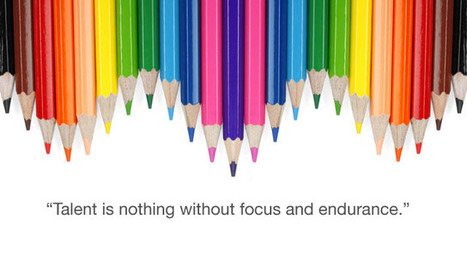



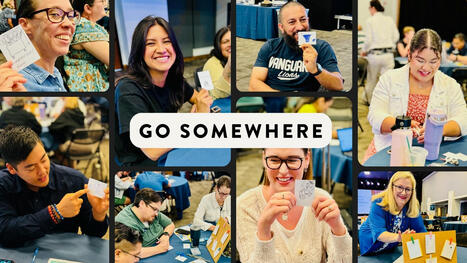

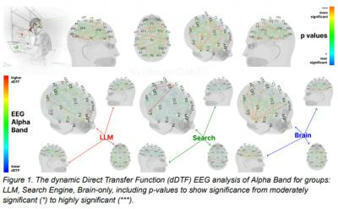


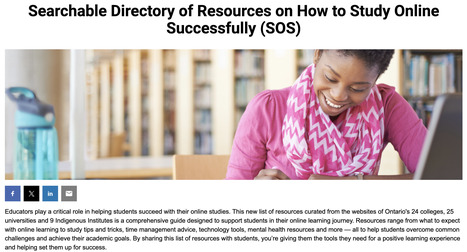
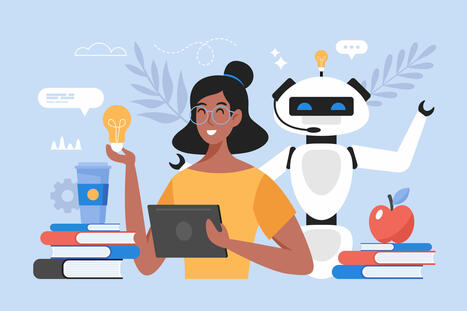
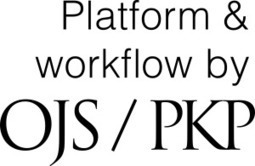
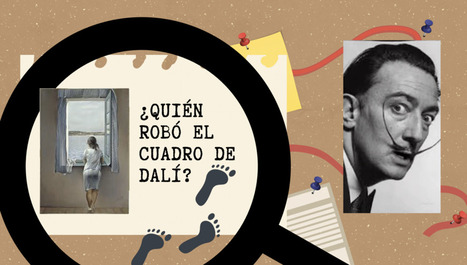



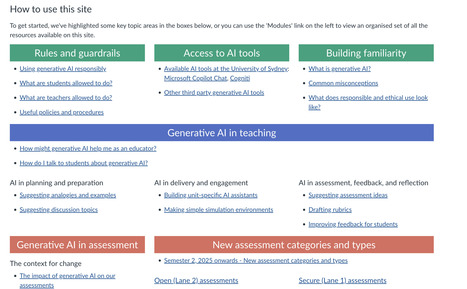
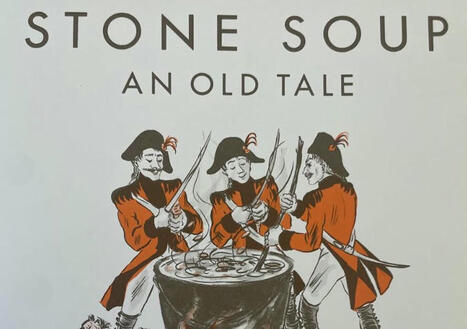








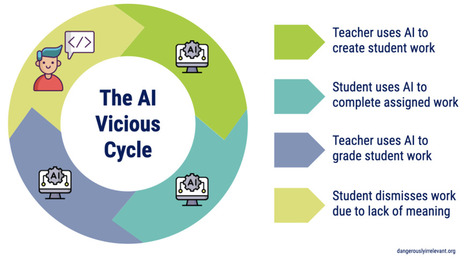
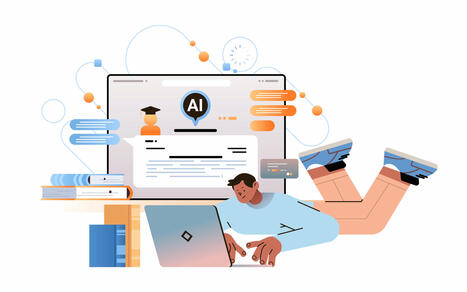





Self-deposit in a repository was not, as many repository advocates would agree, designed as a complete, permanent solution to achieving universal Open Access. It is however an excellent transitional route for individuals, institutions and disciplines to take. It is this message about transition that has been so often lost in Green v Gold debates, a mistake that is being repeated in the post-Finch discussions. We would like to restate the case for what IRs can do for academics and their research, and to respond to some of Mike’s specific concerns about Green OA. The responses correspond to each of Mike’s five concerns.